- Home
- Jojo Moyes
Peacock Emporium Page 9
Peacock Emporium Read online
Page 9
He was evidently relishing this unusual intimacy, enjoying holding her close. She would have liked to sit down, but he seemed unwilling to let her go.
‘It’s in one of those little lanes, the cobbled ones off the square. And it’s got a Georgian window at the front. Like the Olde Curiosity Shoppe.’
‘You don’t want something like that. If you’re going to do it, do it properly, with a great big plate-glass window. Something people can see your stock through.’
‘But it’s not going to be that sort of shop. I told you before. Look, come and see it before you say anything. I’ve got the estate agents’ number in my bag.’
‘Now, there’s a surprise.’
‘I might ring them now. Leave a message. Just to let them know I’m interested.’ She could hear the excitement in her voice. It sounded strange to her, as if it came from somewhere else.
‘Ring in the morning. It’s not going to go at eleven thirty at night.’
‘I just don’t want to miss it.’
‘And you don’t want to decide anything in a hurry. We’ve got to be careful, Suze. They might want too much money. They might want an extra long rental period. They might have all sorts of penalties in the lease. You need to slow down and ask some questions first.’
‘I just want to get on with it.’
He squeezed her. He smelt of soap powder, and the slightly stale yet inoffensive human scent of the end of the day. ‘You know, Suze, we should go to this lunch. We’re fine. We’re earning again. You can tell them about your shop.’
‘But not the baby stuff.’
‘Not the baby stuff.’
‘I don’t want to tell any of them about it. They’ll start going on about it, and Mum will get all excited and try to hide it, and then, if nothing happens, they’ll all be treading on eggs, wondering whether they can say anything. So, no baby stuff.’
He spoke into her hair. ‘I bet Lucy hasn’t got baby stuff.’
‘Neil, no.’
‘I’m only joking. Look, ring them in the morning. We’ll go, and we’ll be bloody cheerful and have a nice day.’
‘We’ll pretend to have a nice day.’
‘You might surprise yourself.’
She snorted. ‘I’d certainly do that.’
Surprisingly, considering it had been nearly eight months, that night they made love. Afterwards Neil had become almost tearful and told her that he really loved her, that he knew this meant everything was going to be all right.
Suzanna, lying in the dark, just able to make out the beamed ceiling she hated, had felt none of his sense of emotional release. Just a mild relief that they had done it. And a sneaking hope, which she was reluctant to admit even to herself, that this meant she had earned herself a couple of months’ grace before she had to do it again.
Seven
Dere Hampton was usually described in its tourist literature as ‘Suffolk’s most beautiful market town’, its Grade II listed buildings, Norman church and antiques shops providing a lure for ambling tourists throughout the summer months, and the occasional stoic walkers in winter. By its older inhabitants, it was described simply as ‘Dere’, and by its younger folk, those who could most usually be found on Friday nights drinking cheap cider and catcalling at each other in its market square, as ‘an effing dump, with nothing to do’. They were not being unreasonable. It was fair to say it was a town more in love with its history than its future, and even more so since it had filled with commuter families pushed out from London and the green belt by spiralling property prices and a hope of ‘somewhere nice to bring up the children’. Its tall, elegant, pastel-coloured Georgian buildings stood dovetailed by Tudor houses, with tiny windows and beams, that lurched over the pavement like ships in high seas, all arranged in a haphazard network of narrow cobbled lanes and small courtyards that branched out from the square. It held at least two of nearly all the shops one might need – butcher, baker, newsagent, hardware store – and an increasing proliferation of those, stuffed with aromatherapy oils, magical crystals, overpriced cushions and scented soaps, that one might not.
It had been almost two months before Suzanna realised what most bothered her about the town: that during working hours it was almost exclusively female. There were headscarved matrons in green waistcoats picking up joints from butchers with whom they were on first-name terms, young mothers pushing prams, carefully coiffed women of a certain age seemingly doing nothing much more than killing time. But apart from those who worked in the shops, or tradesmen, or schoolboys, there were almost no men. They were presumably off on the pre-dawn trains to the City, returning to cooked meals and long-lit houses after dark. It was, she muttered crossly to herself, as if she’d been transported back to the 1950s. She had lost count of the number of times she had been asked what her husband did and, almost a year on, was still waiting for that question to be directed to herself.
Although she would have protested initially that she had nothing in common with those women, she could see herself in some: it was the way they shopped, wandering around the town’s only department store with the measured gait of someone who had both money and time; it was the way it was impossible to get an appointment with either of the town’s two beauty salons; it was the way that crystals and scented candles and food-allergy testing had become not so much an ‘alternative’ as a way of life.
Suzanna was not sure what category her shop would fall into. As she sat, surrounded by boxes of stock, conscious that not only was her till still not working but that the electrician had failed to tell her what lightbulbs she needed for the spotlights, she was not sure that it was going to be a shop at all. Neil had rung twice, wanting to know whether she was certain she needed to buy quite so much stock in advance, while the water board had sent several letters demanding money even before she had opened.
For someone so recently haunted by debt, Suzanna was unworried by any of this. For the weeks that she had held the keys, she had just enjoyed being there, slowly turning the image she had held for the past months into a reality. She had loved travelling around to investigate possible suppliers, at trade exhibitions or tiny backrooms behind London’s Oxford Street, meeting young designers eager to showcase their works, or more established ones who could talk her through years of trade. She loved having a purpose, being able to talk about ‘my shop’, to make decisions based upon her own taste, choosing only what she thought beautiful and unusual.
And then there was the shop itself. The exterior had been given a fresh lick of white paint and the interior was slowly taking shape, nudged along by visits from local plumbers, carpenters and her own amateur ability with a paintbrush. She knew they thought her picky and over-deliberate, but the decisions as to where things should go were complicated because it was not going to be a conventional shop. It was, instead, a mixture of things: a coffee room, for which the back wall held an old church pew, several tables and chairs and a reconditioned Italian coffee machine. It was a second-hand shop, offering a few disparate items simply because she liked the look of them. It had some clothes, some jewellery, some pictures, some ornaments. It had some modern things. And that was about as specific as it got.
She had begun to place a variety of objects in the window. Initially, to make it look inhabited, she had put some of the more beautiful things she had bought during her ‘shopping’ phase and never been able to use: brightly beaded bags, oversized glass rings, an antique picture frame with a modern abstract print. When the stock came, she had felt unwilling to alter her arrangement so she had simply added to it: beautiful concentric circles of Indian bangles, old dresser drawers full of glowing metallic pens, spice bottles with silver lids in a variety of colours.
‘It’s like a sort of doll’s house. Maybe an Aladdin’s cave,’ Neil had said, when he had dropped by at the weekend. ‘It looks very – erm – pretty. But are you sure people are going to understand what it is you’re about?’
‘What does it have to be about?’
‘
Well, what kind of shop is it going to be?’
‘My kind of shop,’ she said, and enjoyed his look of confusion.
Because Suzanna was creating something beautiful, something that was entirely her vision, diluted by no husband or partner. Free to do whatever she wanted, she found herself stringing bargain fairy-lights around the shelves, putting up little painted signs in her own intricate handwriting, colouring the floorboards a pale violet because the colour had taken her fancy. She arranged the tables and chairs, bought cheap from a house-clearance shop and painted with tester pots, into the kind of arrangements she would have liked when she had had coffee with her girlfriends. It was the chairs that had made her see it: she was, she realised, looking at them, making herself a little corner of something magical, perhaps a little cosmopolitan, a place where she could once again feel at home, separate from the provincial eyes and attitudes that now surrounded her.
‘So, what kind of shop are you?’ one of the antiques dealers had said, after eyeing the frame in her window. His voice had held just the faintest note of derision.
‘I’m . . . I’m an emporium,’ she had said, and ignored his raised eyebrows as he left to return to his own shop. And that’s what she had called it, The Peacock Emporium, the sign painted in chalk blue and white, a stencilled drawing of a peacock feather beside it. Neil had looked at it with a mixture of pride and fearfulness; he confessed later that he had wondered whether, with his name on the door, he might face bankruptcy again if it folded.
‘It’s not going to fold,’ said Suzanna, firmly. ‘Don’t be so negative.’
‘You’re going to have to work bloody hard,’ he said.
Even Neil’s anxieties didn’t bother her. She found it harder to argue with him at the moment. She slept well.
Apart from the stock, she had bought nothing for weeks.
‘Are you open?’
Suzanna glanced up from her spot on the floor. The religious-icon candles had seemed like a good idea at the London wholesaler’s, but now, as she watched green padded waistcoat after green padded waistcoat pass the window, either oblivious or squinting through the glass in a vaguely disparaging manner, she wondered whether she had been too cosmopolitan in her tastes. They looked beautiful next to the beaded bags but, as Neil kept saying, there was no point in her buying beautiful things if no one around here would be prepared to buy them.
‘Not quite. Probably on Monday.’
The woman walked in anyway, closed the door behind her and gazed around with a rapt expression. She wasn’t wearing a green waistcoat but a maroon anorak, and a hand-knitted multicoloured woollen hat from which her grey hair stuck out at right angles. At first glance Suzanna might have written her off as a trainee bag-lady, but on looking closer, she noted that her shoes were of good quality, as was her handbag.
‘Doesn’t it look lovely in here? Very different from how it was before.’
Suzanna struggled to her feet.
‘Yes. This shop was a grocer’s, you know, when I was a girl. There was your fruit over this side . . .’ she gestured to where Suzanna’s tables and chairs now stood ‘. . . and on this side the vegetables. Oh, and they used to do fresh eggs. They kept their own chickens out the back, you know. I don’t suppose you’ll be doing that.’ She laughed, as if she had said something amusing.
‘Right. Well, I’d better be—’
‘What are the tables for? Are you going to serve food?’
‘No.’
‘People like a bit of food.’
‘You need a licence for that. I’m going to serve coffee. Like espresso.’
‘Espresso?’
It was moments like this that made Suzanna’s renewed optimism falter. How could she sell coffee in a town whose inhabitants didn’t even know what espresso was? ‘It’s a type of coffee. Quite strong. Served in small cups.’
‘Well, I suppose that’s a good way to keep your profits up. The tea house on Long Lane serves their tea in very small cups, I always say. I suppose it keeps their profits up too.’
‘It’s meant to be in small cups.’
‘I’m sure they’d say the same, dear.’ She moved over to the window display, muttering to herself as she fingered the objects on display. ‘What’s this meant to be, then?’ She held up the abstract painting.
‘I don’t believe it’s meant to be anything.’ Suzanna heard the first hint of steel in her voice.
The woman peered closely at it. ‘Is it modern art?’ She said the words as if she were speaking a foreign language.
‘Yes.’ Please don’t let her say ‘A child could do that,’ Suzanna thought.
‘I could do that. If I did one like it, would you sell it for me?’
‘I’m not really a gallery. You need to talk to a gallery.’
‘But you’re selling that one.’
‘It’s a one-off.’
‘But if you sell it, there’s no reason why you shouldn’t be able to sell another. I mean, it proves there’s a demand.’
Suzanna could feel herself losing patience. She had a short fuse at the best of times. These were not the best of times.
‘It’s been lovely talking to you, but I’m afraid I really must get on.’ Suzanna held out an arm, as if to steer the woman towards the door.
But she had rooted herself to the centre of the floor. She crossed her arms. ‘Grew up in this town, I did. I’m a seamstress by trade, but I moved away when I married. Lots of us did, then.’
Oh, God. She was going to want to talk history. Suzanna looked around desperately, trying to find some practical task she could use as an excuse to get rid of her.
‘My husband died three years after we married. Tuberculosis. Spent almost six months in a Swiss clinic, he did, and then he died anyway.’
‘I’m sorry.’
‘I’m not. He was rather a stupid man. I only realised it after I’d married him. We didn’t have children, you know. He preferred his mouth-organ.’
Suzanna let out a snort. ‘What?’
The woman brushed vaguely at her hair. ‘He didn’t know what to do, dear. I did, because my mother had told me. I told him on our wedding night, and he was so horrified that he said no, thank you, he’d rather play his mouth-organ. So that’s what we did every night, for two years. I read my book in bed, and he played his mouth-organ.’
Despite herself, Suzanna found herself laughing. ‘I’m sorry. Did you – did you find anyone else?’
‘Oh, no. No one I wanted to marry. I had rather a lot of affairs, which were nice, but I didn’t want someone in my bed every night. They might have wanted to play some musical instrument too. Goodness knows what I might have ended up with.’ The woman, apparently briefly haunted by visions of bass drums and tubas, gave a tiny shake of her head. ‘Yes, it’s all changed. I’ve only been back here six months, and it’s all changed . . . Are you local?’
‘I was born here, but we lived in London until last year.’ She wasn’t sure why she had told the truth: she had a feeling that the less she told this woman the better.
‘So you’re a returnee too! How exciting. Well, we’ve each found a kindred spirit. I’m Mrs Creek. Johanna Creek. You can call me Mrs Creek. What’s your name?’
‘Peacock. Suzanna Peacock.’
‘We had peacocks in the house where I grew up. It’s just outside the town, on the Ipswich road. Dreadful birds they are, make the most hideous noise. They used to do their business all over our window-sills.’
She turned and put a hand up to her hat, as if to check it was still there. ‘Well, Suzanna Peacock, I can’t stand around here chatting all day. I’m afraid I’ll have to get on. I’ve got to get a shepherd’s pie from the Women’s Institute market. I’m going to make them some aprons and peg-bags. Hardly the stuff I’m used to, but it keeps the fingers working. I’ll come back when you open and have one of your small cups of coffee.’
‘Oh, good,’ said Suzanna, drily.
Before she left, Mrs Creek stared again at the abstract p
ainting, as if memorising it in preparation for her own version.
She arrived home at almost half past nine. Neil was sitting with his feet on the coffee table, an empty bowl and a plate littered with a few crumbs next to them. ‘I was about to send out a search party,’ he said, turning his head away from the television.
‘I was trying to get the stock looking right.’
‘Told you you needed more shelves in the front.’
‘What’s for dinner?’
He looked mildly surprised. ‘I haven’t made anything. I thought you might be back in time to cook.’
She removed her coat, feeling suddenly cross and tired. ‘I’m opening in three days’ time, Neil. I’m run off my feet. I thought just this once you might cook for me.’
‘You might have eaten already. Besides, I didn’t know what time you’d be back.’
‘You could have rung.’
‘You could have rung me.’
Suzanna threw her coat on to the back of a chair, and stomped into the little kitchen. The sink was still full of the morning’s breakfast things. ‘Well, as long as you’re all right, Neil, don’t worry about me, will you?’
His voice, through the serving hatch, lifted in protest: ‘I only had bloody bread and cheese. I’ve hardly been cooking myself up a banquet.’
She began slamming cupboard doors, searching for something easy to prepare. She hadn’t had time to go to the supermarket for a couple of weeks, and the shelves contained little more than the odd spilt lentil or opened stock cube. ‘You could have washed up.’
‘Oh, for crying out loud! I leave the house at a quarter to six in the morning. Do you want me to wait here until you’ve had your breakfast?’
‘Just forget it, Neil. You look after yourself, and I’ll look after myself, and then at least we both know where we stand.’
There was a brief silence, and he appeared in the kitchen doorway. There was little space for them both, and he moved as if to steer her out into the living room. ‘Don’t be so melodramatic, Suze. Look, you sit down and I’ll cook you something.’

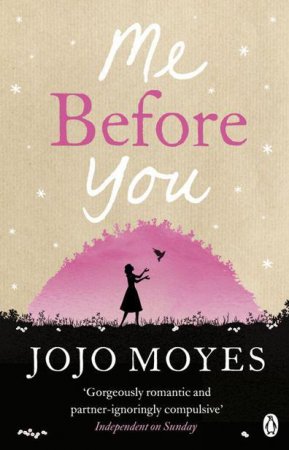 Me Before You
Me Before You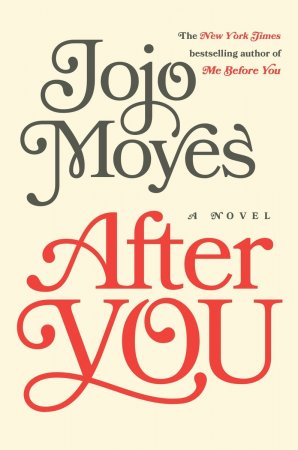 After You
After You The Last Letter From Your Lover
The Last Letter From Your Lover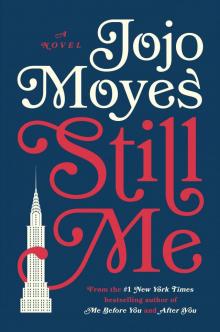 Still Me
Still Me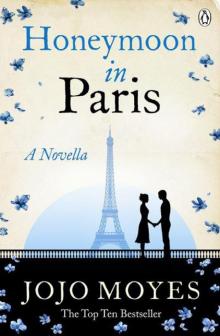 Honeymoon in Paris
Honeymoon in Paris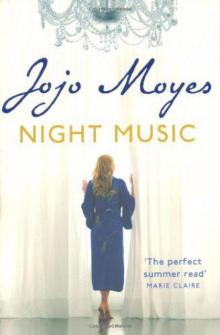 Night Music
Night Music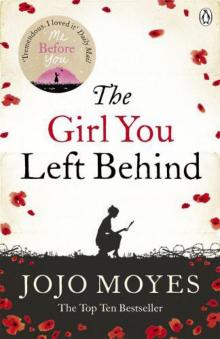 The Girl You Left Behind
The Girl You Left Behind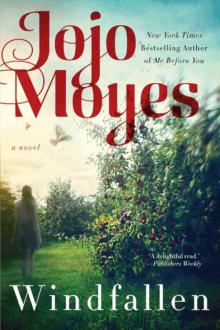 Windfallen
Windfallen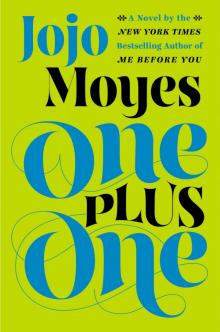 One Plus One
One Plus One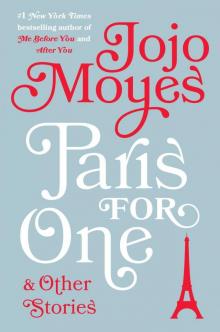 Paris for One and Other Stories
Paris for One and Other Stories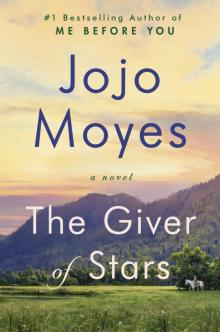 The Giver of Stars
The Giver of Stars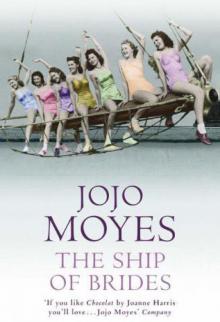 The Ship of Brides
The Ship of Brides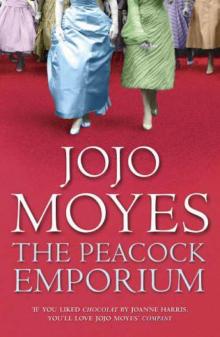 The Peacock Emporium
The Peacock Emporium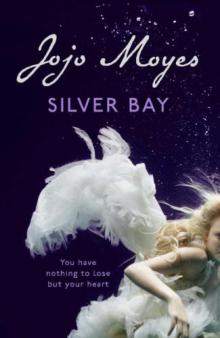 Silver Bay
Silver Bay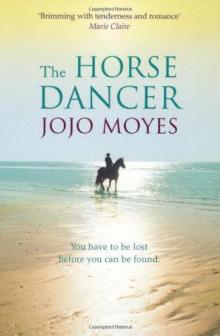 The Horse Dancer
The Horse Dancer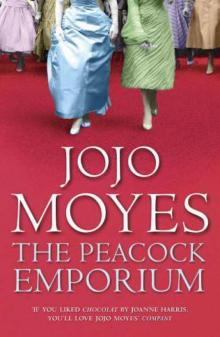 Peacock Emporium
Peacock Emporium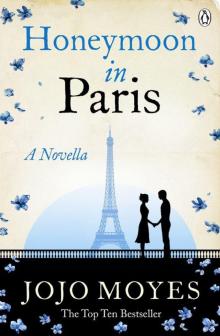 Honeymoon in Paris: A Novella
Honeymoon in Paris: A Novella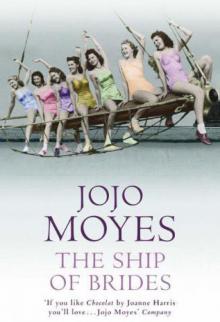 Ship of Brides
Ship of Brides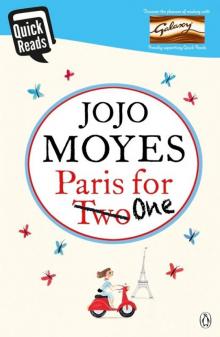 Paris For One (Quick Reads)
Paris For One (Quick Reads)